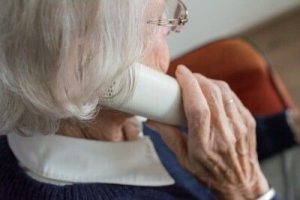Nursing care in Germany – people are getting older and older
Significance for nursing in Germany
As Germans are getting older, the proportion of people in need of nursing care is increasing, and professional nursing institutions are helping them to care for their sick.
Ever-improving medical care and infrastructure contribute significantly to the fact that the life expectancy of people in Germany is steadily increasing. In principle, this is also a desirable trend, but it is accompanied by the fact that the number of people in need of care has increased and will probably continue to increase. To record the number of people in need of care and the number of care facilities, the German Federal Statistical Office collects care statistics every two years.
The most important data and figures
83% of those in need of care in Germany are people over the age of 65. Life expectancy. This means that about 2.5 million people in Germany are dependent on them for help. That is 7% more than two years earlier. Of these 2.5 million people in need of long-term care, 30% were cared for at home by an outpatient care service or received full inpatient care in a nursing home.
The cost of such treatments is often very expensive, and the statutory health insurance covers these costs only for a period of 4 weeks. A nursing insurance policy must then be taken out, and the services are then billed to this insurance policy. In some federal states, such as z.B. North Rhine-Westphalia, the state contributes additional support with the nursing home allowance.
As an example, the coverage of care facilities in the city of Cologne can be examined in more detail. The proportion of people who are dependent on external help is slightly below the national average at 2.3%. These 22.600 people in need of care are cared for by ca. 3100 employees of one of the 119 outpatient nursing services or in one of the 90 nursing homes with approx. 6000 employees cared for.
Services provided by the Sick Care Service
The relatives of the care recipients naturally try to leave them at home as long as possible. However, since this is very strenuous and also very time-consuming, the outpatient help of a nursing service is often resorted to. The services that these caregivers then provide depend on the respective care level of the person concerned. Basically, however, a distinction must first be made between the terms of care and nursing for those in need of care.
Nursing implies the use of medical treatments and requires cooperation with a doctor. Services that the nurse provides, for example, are dressing changes, infusions and the administration of medicine. Pure care, on the other hand, is assistance with everyday tasks, such as eating or hygiene.
Family members can also take over these tasks, but a caregiver brings massive relief. However, if outpatient care is no longer sufficient, the alternative of having the patient cared for in a home must be considered. In some circumstances, the financial aspect of this does not have to be an obstacle: A nursing care insurance pays up to 1500 EUR per month and the nursing care housing allowance that is paid in the states of Hamburg, Mecklenburg-Western Pomerania, North Rhine-Westphalia, the Saarland and Schleswig-Holstein, brings additional relief.
Whether after illness or simply due to old age, if a relative can no longer manage his or her daily life alone, a trained caregiver can bring relief. In the greater Cologne area, for example, the nursing services Cologne offer services of various scopes. After the guiding principle „We help you to help“ advise the nursing services Cologne the members and support them with the responsible task of the patient care of your loved ones.




